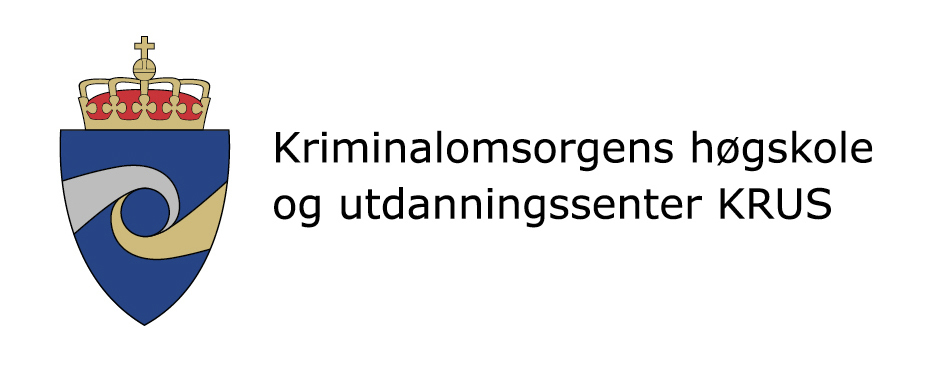KRUS3201 Radicalization and Violent Extremism in the Correctional Services
| Emnekode | KRUS3201 Radikalisering og voldelig ekstremisme i kriminalomsorgen |
| Engelsk emnenavn | KRUS3201 Radicalization and Violent Extremism in the Correctional Services |
| Studieprogrammet emnet inngår i | Bachelor i straffegjennomføring / Programme: Bachelor in Correctional Studies |
| Emnegruppet emnet inngår i | Valgfritt emne / Module group: Elective module |
| Studiepoeng | 15 / Credits: 15 |
| Semester | Vår 2022 / Spring 2022 |
| Undervisningsspråk | Norsk eller engelsk / Teaching language: English or Norwegian |
| Emneansvarlig |
This module focuses on prevention and other initiatives directed at radicalization amongst prisoners in the custody of the Correctional Service. The module shall result in students having a broad understanding and knowledge of the concepts and issues related to radicalization and violent extremism. The module will give students basic profession-related skills regarding identification, prevention and management of prisoners either already radicalized (including violent extremist offenders – VEOs) or prisoners vulnerable to radicalization.
Spring 2022 Schedule and examination dates
All dates are subject to change. If the information on Canas differs from the information on this page, information on Canvas takes precedence over krus.no.
Schedule
Each seminar is held Tuesday to Thursday.
Tuesdays: 10 a.m. - 4 p.m.
Wednesdays: 9 a.m. - 4 p.m.
Thursdays: 9 a.m. - 3 p.m.
Seminar 1
18th of January - 20th of January
Seminar 2
8th of March - 10th of March
Seminar 3
26th of April - 28th of April
Examination dates
The examination will take place during week 21. Exact dates will be announced in Canvas.
Learning outcomes
Knowledge
The student shall
- have a wide knowledge of the relevant concepts, definitions, and theories necessary to understand violent extremism, terrorism, and processes of radicalization
- have wide knowledge of different forms of violent extremism, terrorism, and radicalization
- have wide knowledge of potential factors leading to radicalization, de-radicalization and dis-engagement from a correctional perspective
- understand the structure and funding of terrorist organizations and how they function
- understand, in the context of corrections, what role religion can play in radicalization and, not least, in de-radicalization.
- be acquainted with the connections between violent extremism and crime
- be acquainted with current developments and contemporary research within this field
Skills
The student shall be able to
- apply acquired knowledge to assist in the identification and analysis of potentially radicalized offenders by interpreting signs, signals, conduct, symbols etc. amongst prisoners
- apply strategies for the prevention and management of radicalization in the Correctional Service
- facilitate change in radicalized offenders already convicted of terrorism-related activity and hate crimes
General competence
The student shall
- be able to communicate, in writing and orally, relevant concepts, definitions, and potential solutions related to this subject
- be able to exchange views and experiences with others working in this field and thereby contribute to the development of ‘best practice’
- be able to function in the role of adviser in the Correctional Service on matters relating to radicalization and violent extremism
Entry requirements
To apply, you must be a student on either the Bachelor of correctional studies supplementary course at KRUS or a bachelor programme at a Norwegian or international higher education institution KRUS has an agreement with. You must be a qualified prison officer or have achieved a minimum of 120 ECTS credits from a university or university college. International students from institutions with an exchange agreement with KRUS, must have achieved at least 60 ECTS
This module may be open to single subject students through a separate application process. Students on the supplementary course, national and international exchange students, and employees of the Norwegian Correctional Service will be given priority in the application process.
For more information, see our website.
Learning and teaching methods
Students are expected to work a minimum of 375 hours on this subject. This includes three three-day seminars at KRUS or online. Independent study and obligatory assignments shall be completed in between these seminars. These seminars will include both lectures, group work, and other teaching methods. Independent study of the syllabus, including following online lectures and conducting tasks, is essential between the seminars.
Course requirements
One written group assignment of 2,000-2,500 words. The students will, together with a supervisor, choose the topic and literature to be used for the assignment.
80% obligatory attendance in the seminars.
All requirements must be met before sitting the exam.
Assessment
Individual term paper - written assignment (final exam) of 2,200-2,600 words. Submissions under 2,200 words or over 2,600 will not be accepted.
Internal and external examiners.
Grading system/Assessment
A five-point A-E marking scale for pass and F for fail.
Materials permitted in examinations
All materials permitted.
Reading list
Go to Rammeplan og programplan BA-studiet, and open the pdf document "Programplan BA21V".
